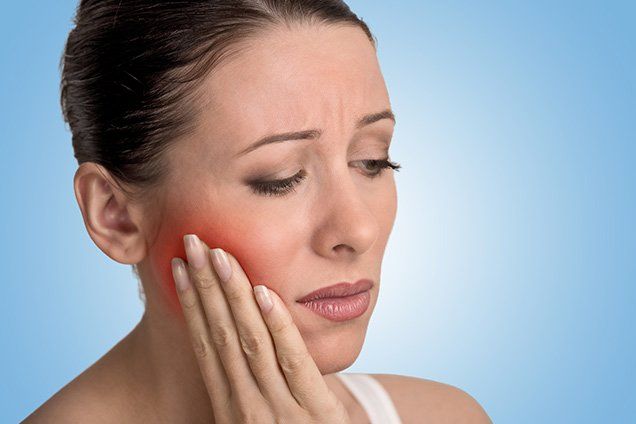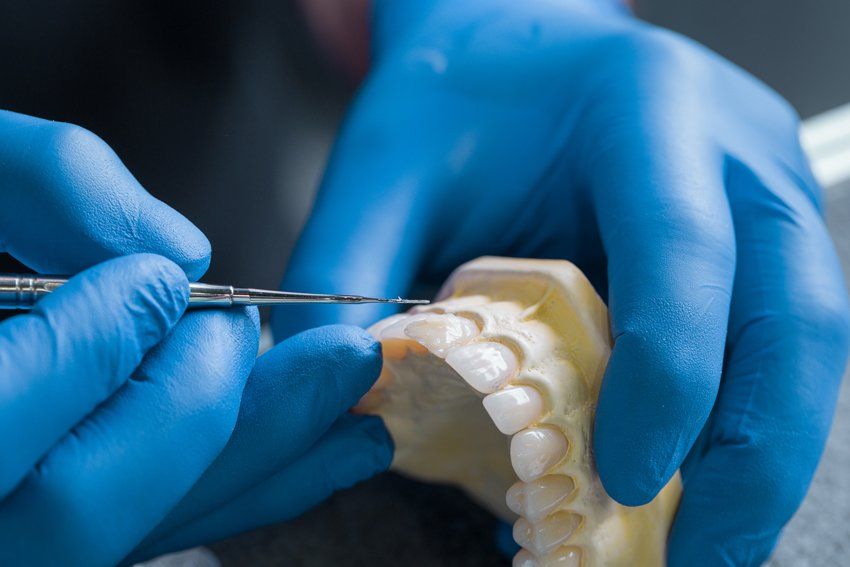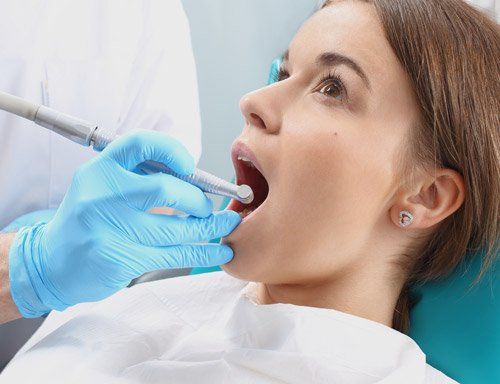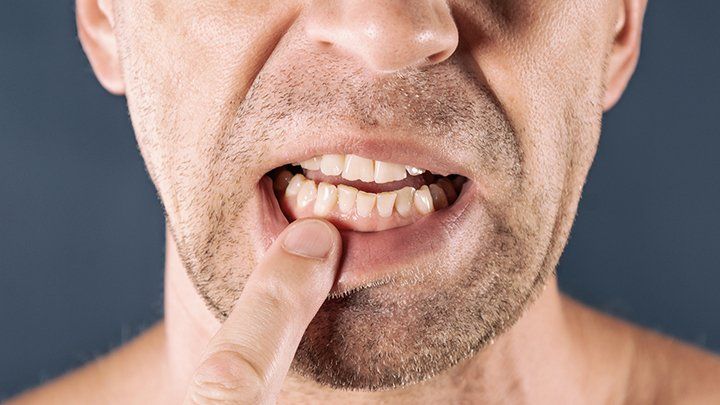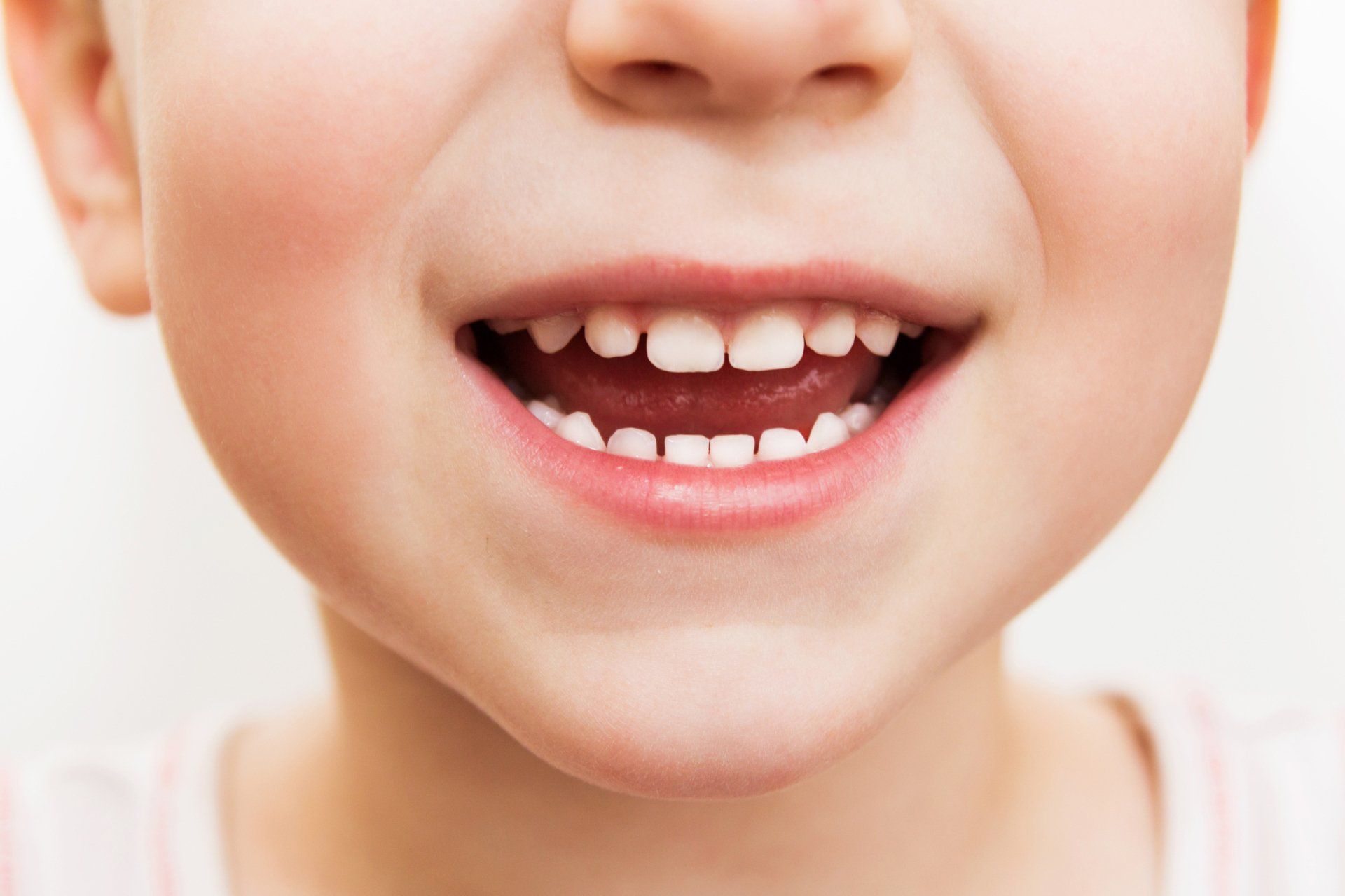But people can experience some discomfort and pain after the numbing wears off. Some soreness is normal after a procedure, but debilitating pain should not occur. If you have severe pain after getting basic dental work done, here are some explanations and solutions to explore.
Normal Soreness
There are a few reasons why your teeth feel sore after a filling. First, drilling into a tooth to remove decay can aggravate the nerve of the tooth. After the numbing goes down, the nerve can still be a bit sensitive, but this sensitivity goes away in a day or so at most.
Second, accessing the areas in your mouth that need work can require some props, clamps, or spacers. These can sometimes make the gums a bit irritated, and your jaw can get sore from holding a wide-open position for so long.
Finally, the injection sites for anesthesia are tender, and they can sometimes remain tender for a time after the work is completed.
All of these symptoms can be handled with over-the-counter pain medication.
Excessive Soreness
If you have waited a few days and the soreness seems to be getting worse instead of better, it's time to consider troubleshooting with your dentist.
More Work is Needed
Sometimes, a large filling can result in some sensitivity for much longer, especially if the filling was very close to the actual nerve of the tooth. Pain might take much longer to subside than with a smaller, less invasive filling. These larger fillings are often a first attempt to fix any damage that may require a root canal, but if they do not work, more advanced restoration may be needed.
Your Bite is Off
Another reason why a filling may cause pain is because of a malocclusion. This occurs when the filling is not the correct shape, so it sits higher than your natural tooth. Even the slightest change to your bite can cause severe pain in the entire side of your mouth, including through the jaw and opposing top or bottom set of teeth.
The reason why malocclusions cause so much pain is because biting and chewing place force on the teeth. The higher area takes a much greater amount of the bite force, and that pressure goes through the tooth, essentially bruising the tissue and nerves supporting it.
If you find that you're gaining sensitivity not just in the tooth that was fixed but in the surrounding or opposing teeth as well, it's a sign your bite needs to be repaired by your dentist. Fixing the problem only takes a few minutes, and you won't need any numbing needles.
Your Filling Needs Replaced
The most popular type of filling is a composite resin. It's the same color as your teeth, and it stands up well to wear. People are most likely to choose this filling type over amalgam filling or gold fillings.
However, sometimes the composite filling can shrink within the hollowed out cavity space. When this occurs, decay can increase as bacteria and food particles get caught in the area between the tooth and the filling.
Usually, this means you'll need to replace the current work with a better fitting composite filling (done in more layers for better adhesion). Sometimes, however, depending on the shape and size of your cavity, your dentist might recommend a different filling type to prevent further damage in the future.
For more information on tooth pain after basic dental work, contact Teresita V. Hernandez, DDS.

